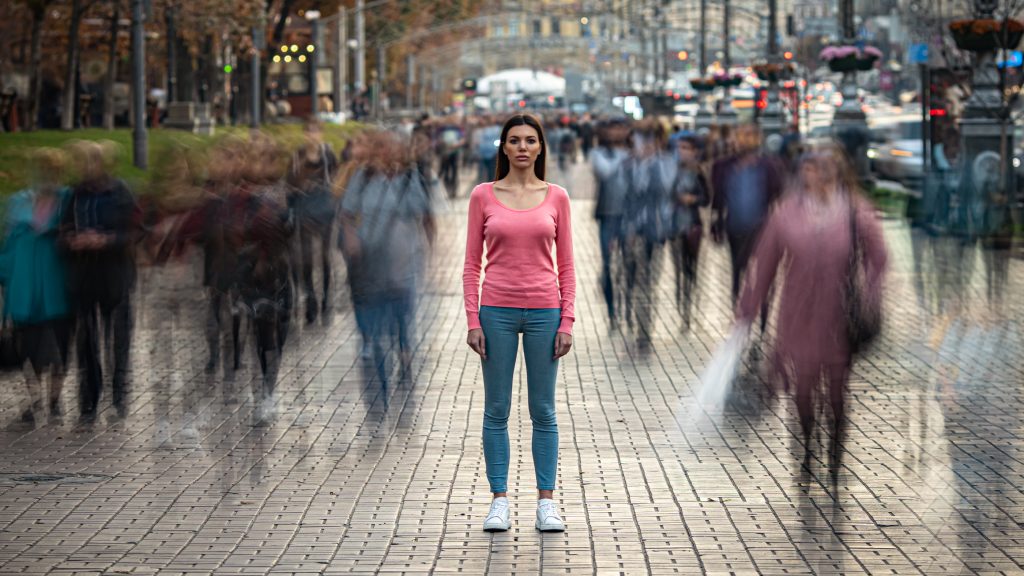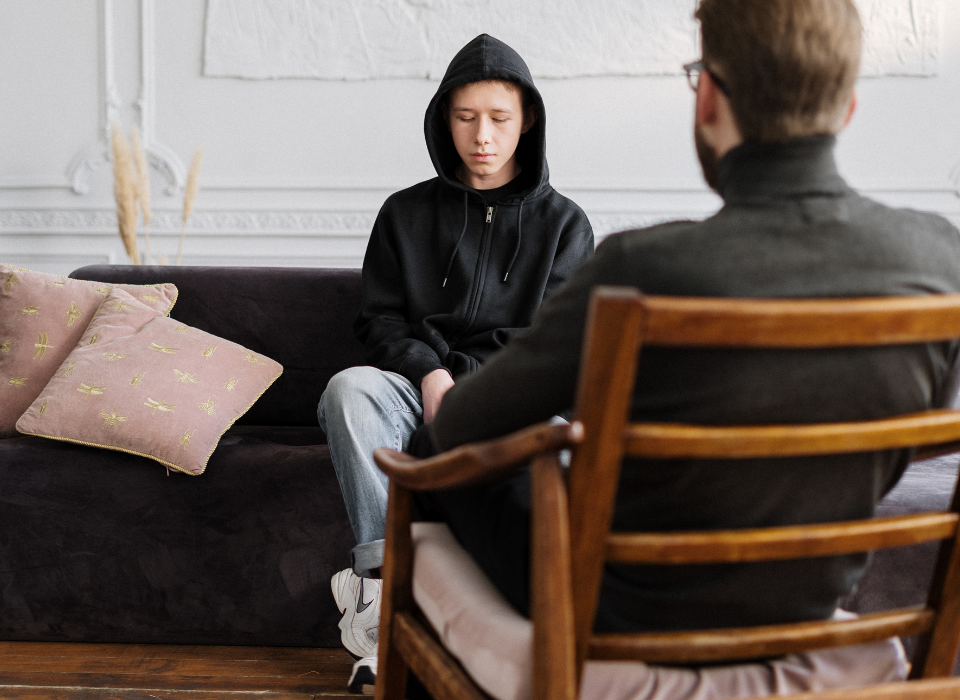
Understanding the Symptoms and Impact of an Anxiety Attack
January 13, 2025
The Negative Impacts of Name-Calling Across All Ages
January 20, 2025
Social anxiety, often misunderstood as mere shyness, is a mental health condition that can significantly impact an individual’s daily life. It involves an intense fear of social situations, leading to avoidance and distress. To better understand this condition, we’ll explore what social anxiety is, the signs, and how common it is, offering insight into recognizing and addressing this widespread issue.
What Is Social Anxiety?
Social anxiety is a type of anxiety disorder characterized by an overwhelming fear of being judged, embarrassed, or humiliated in social situations. Unlike occasional nervousness in social settings, such as giving a speech or meeting new people, social anxiety is persistent and disruptive.
Individuals may feel extreme self-consciousness in routine activities like eating in public, speaking in a group, or even making small talk. This fear often leads to avoidance behaviors, which can interfere with personal relationships, career opportunities, and overall quality of life.
How Common Is Social Anxiety?
Social anxiety is more prevalent than many realize. According to studies, it affects approximately 7% of the U.S. population annually, making it one of the most common mental health disorders. It typically begins in adolescence or early adulthood but can develop at any age.
Globally, the prevalence varies, but it remains a significant issue affecting millions. Unfortunately, despite its prevalence, many individuals do not seek treatment due to stigma, lack of awareness, or difficulty recognizing the symptoms.
Signs of Social Anxiety
The first step in addressing social anxiety is recognizing its signs, which can manifest in physical, emotional, and behavioral ways.
1. Physical Signs
Social anxiety often triggers a physical stress response, including:
- Blushing: An uncontrollable reddening of the face in social settings
- Sweating: Excessive sweating, even in non-stressful environments
- Trembling: Noticeable shaking, particularly in hands or voice
- Increased Heart Rate: Feeling like the heart is racing or pounding
- Nausea or Stomach Upset: A common symptom during or before social interactions
2. Emotional Signs
Social anxiety can also lead to overwhelming emotional challenges, such as:
- Fear of Judgment: A persistent worry about being criticized or evaluated negatively
- Self-Consciousness: Feeling overly aware of oneself in social situations
- Anticipatory Anxiety: Excessive worry about upcoming events or interactions
- Low Self-Esteem: Believing one is inferior or inadequate in comparison to others
3. Behavioral Signs
The behavioral aspects of social anxiety can be equally disruptive, including:
- Avoidance: Skipping social events, meetings, or casual outings to avoid discomfort
- Difficulty Speaking: Struggling to find words or speak clearly due to anxiety
- Dependence on Safety Behaviors: Using coping mechanisms like avoiding eye contact or clinging to a trusted companion in social settings
Impact of Social Anxiety
The effects extend far beyond the immediate symptoms. Over time, untreated social anxiety can lead to:
- Isolation: Avoiding social interactions can lead to loneliness and a lack of meaningful relationships
- Professional Limitations: Fear of social interactions may prevent individuals from advancing in their careers or pursuing opportunities
- Mental Health Challenges: Social anxiety often co-occurs with other disorders, such as depression or generalized anxiety
What Can Be Done About Social Anxiety?
While social anxiety can feel debilitating, it is treatable. Several approaches can help:
- Therapy
- Cognitive Behavioral Therapy (CBT): CBT is one of the most effective treatments for social anxiety. It helps individuals identify and challenge negative thought patterns contributing to their fears
- Exposure Therapy: Gradually confronting feared social situations can help reduce anxiety over time
- Medication
- In some cases, medications like selective serotonin reuptake inhibitors (SSRIs) can be prescribed to manage symptoms
- Lifestyle Changes
- Practice Mindfulness: Techniques like meditation and deep breathing can help reduce stress in social situations
- Gradual Exposure: Increasing participation in social settings can build confidence over time
- Seek Support Groups: Connecting with others who understand social anxiety can provide valuable encouragement and strategies
- Education and Awareness
- Learning more about what social anxiety is and how it affects individuals can help reduce stigma and promote empathy
Get Help Today
Social anxiety is a common yet often misunderstood mental health condition that affects millions worldwide. By understanding it, recognizing the signs, and acknowledging how common it is, individuals and their loved ones can take steps to address it. With proper treatment and support, those living with social anxiety can lead fulfilling and connected lives. If you or someone you know is struggling, reaching out to a mental health professional is a vital first step toward recovery.
_________________________________________________________________________________
Looking for treatment for an eating disorder, anxiety, depression, trauma, or postpartum mood disorder?
Evolve Counseling Services is a specialized team of Licensed Therapists providing treatment in Paoli.



